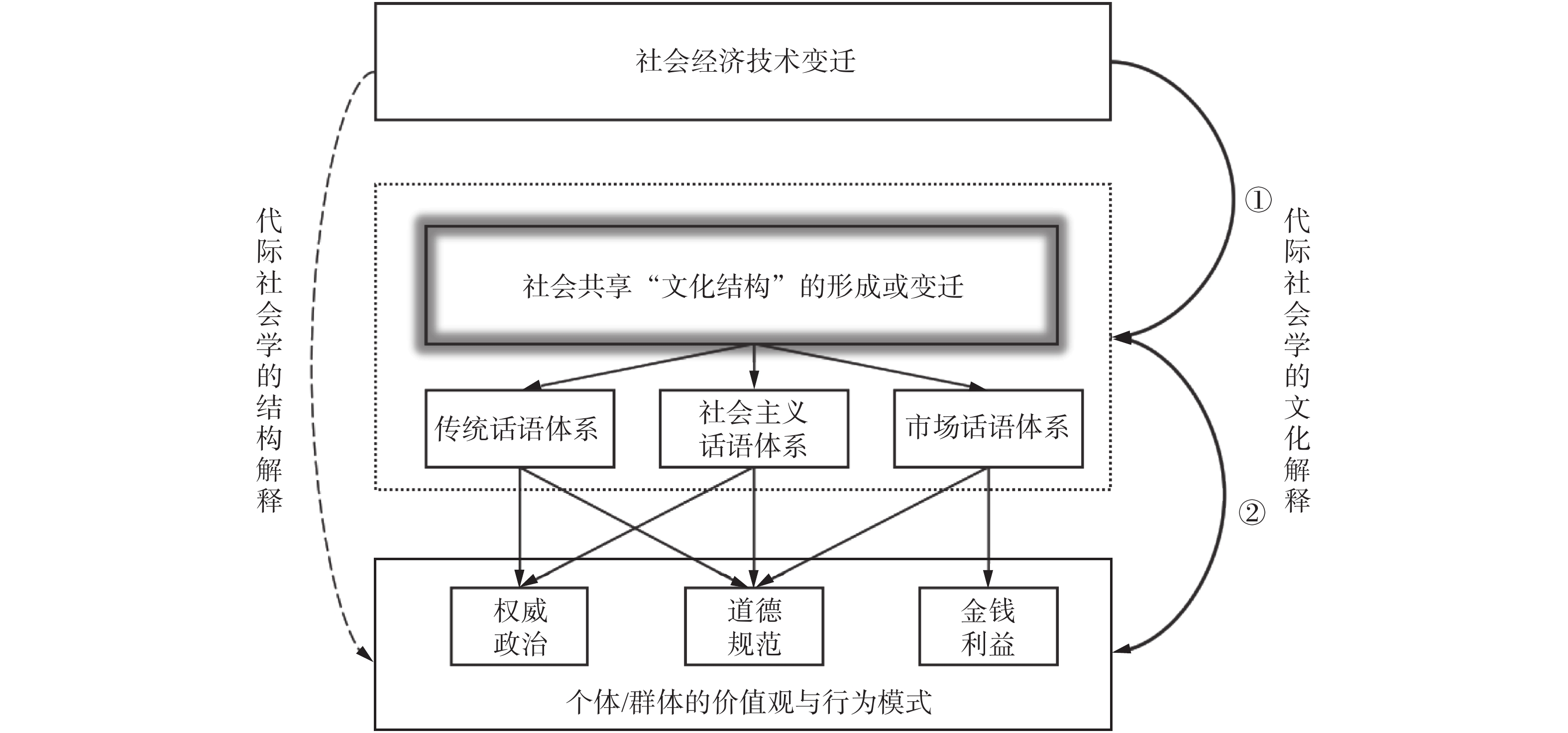Citation:
Yi ZHOU. New Paths in the Study of Emerging Generation Values and Behavior Patterns[J]. Academic Monthly, 2021, 53(10): 130-141.

New Paths in the Study of Emerging Generation Values and Behavior Patterns
-
Abstract
This paper casts its foci on values and behavioral patterns of the new and young generation, aiming to build a theoretical framework for understanding the influence of cultural structures on them. In specific, this paper first unearthes two neglects in previous studies. First, focal theories have been neglected in previous attempts to investigate values and behavioral patterns of the young generation. This paper tries to incorporate the concept of “intergenerational order” into “social order.” In so doing, three classical theories of social order (i.e., power obedience, norm sharing, and interest contract) can provide lenses to integrating scattered studies on youth culture and intergenerational relations. By serving as the main element in the theoretical framework proposed in this paper, social order elevates youth studies from the micro- and meso-level to the macro-level. Second, previous studies have neglected the role of “cultural structures” when unravelling the formation of values and behavioral patterns. Therefore, this paper borrows theoretical tools from cultural sociology to interpret how the macro social structure transforms individual cognition and actions. In China, the social structure is represented by the special cultural structure where the discourse systems of tradition, of socialism, and of markets coexist. This “cultural turn” expands the scope of studies on values and behavioral patterns of the young generation.
-

-
References
-
Access
-
-
[1]
Xiangzhou HE
. The Marginal Model of Public Governance and the Verification of the People-oriented Public Governance Idea. Academic Monthly,
2020, 52(12): 68-78.
-
[2]
. . Academic Monthly,
2016, 48(08): 124-130.
-
[3]
. . Academic Monthly,
2017, 49(07): 165-179.
-
[4]
. . Academic Monthly,
2017, 49(01): 104-116.
-
[5]
Junjie HUANG
. What Confucianism Can Contribute to an Ecological Culture. Academic Monthly,
2023, 55(1): 11-19.
-
[6]
Yi ZHOU
. Thick and Thin: Traditional Chinese Values and Concepts in Globalization. Academic Monthly,
2022, 54(10): 120-133.
-
[7]
. . Academic Monthly,
2019, 51(2): 1-1.
-
[8]
Li JIN
. Seventeen-Year-Old Light Cavalry and the Structure of Feelings of the Youth in the 1990s. Academic Monthly,
2020, 52(4): 129-141.
-
[9]
. . Academic Monthly,
2016, 48(06): 53-67.
-
[10]
YANG Xiangrong
. . Academic Monthly,
2018, 50(6): 113-120.
-
[11]
Wenfang YAO
. The Poetic Model/Hermeneutic Model: The Interpretation Approach to Productive Literary Criticism. Academic Monthly,
2022, 54(9): 159-170.
-
[12]
Yuefeng CHEN
. Regulating Risk Administration from the Perspective of the Law of Administrative Action. Academic Monthly,
2020, 52(6): 98-110, 97.
-
[13]
Baifeng CHEN
. The Choice of Mode of Rural Land System in Concerning with Water Supply. Academic Monthly,
2020, 52(5): 113-125.
-
[14]
Chenjun YOU
. The Powers and Compound Functions of the Discourse Mode about Pettifoggers’ Retribution for Evildoing. Academic Monthly,
2019, 51(3): 95-108.
-
[15]
Weiguo ZHANG
, Shuang WANG
. The Rise of the Great Powers: Eastern Asian Model andChinese Road. Academic Monthly,
2019, 51(10): 67-81.
-
[16]
He Da’an
, Yang Yijun
. . Academic Monthly,
2018, 50(5): 68-77.
-
[17]
. . Academic Monthly,
2016, 48(12): 86-94.
-
[18]
. . Academic Monthly,
2016, 48(02): 88-96.
-
[19]
. . Academic Monthly,
2017, 49(04): 73-82.
-
[20]
. . Academic Monthly,
2017, 49(03): 102-111.
-
-




 沪公网安备 31010102003103号
沪公网安备 31010102003103号 DownLoad:
DownLoad: